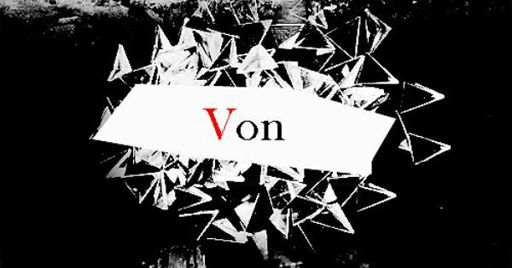
This adds a new level to their relationship, and it is during this scene in HIGHS&LOWS the song plays that I believe Lisa realizes how important she is to Twelve, and how much she had evolved from an object of fascination to someone Twelve could truly care about. Looking at the lyrics from Twelve’s perspective and considering what was probably going through his head at the time, it is safe to assume that his VON (“hope”) was Lisa, and the lyrics represent his “rebirth” through his interactions and growing feelings (platonic or romantic) for Lisa. That is why the empathy, the thing Twelve had casted away so long ago, is “reawakened”. A part of him deep down wanted to live a normal life, I’m sure. Since Lisa was apparently similar to those kids, including himself, he probably then started monitoring her actions as a way of “living through her” so to speak. Because of that, he probably started wondering what his life would have been. If she was an orphan like Twelve, would she have been in the same situation as him? I think that is a question that had been plaguing Twelve in the initial episodes.

This is ironic, for she is living the life as a normal member of society Twelve never was able to live, yet she was similar to him. When he first meets Lisa, he notices how her “aura” (her voice) is similar to those of the institution. Twelve, who has been so used to interacting with others behind a figurative “wall”, becomes curious about Lisa’s life. You could argue that he did this initially to make sure she didn’t give Sphinx away, but something about his attitude changed. They can lure you into a false sense of security, only to pull a stunt like Twelve did when he told Lisa that he was going to kill her if she stepped out of line.īut then Twelve finds himself slowly wondering about Lisa and what she was doing, and goes so far as to even track her. It is this kind of person that are in actuality more terrifying and dangerous. Not all indifferent people are going to act cold and detached they may seem normal and friendly, but you can’t quite pinpoint what is off about them.

On the contrary, his reaction is very real. He isn’t broody about it, but it is clear he has given up hope on humanity. That he would have to build a barrier up within his heart, to give up on his humanity and ability to empathy so he can live another day with some sort of sanity. That he would harden his heart so he wouldn’t break under the torture other humans were inflicting on him. It’s understandable, after all, that in order to mentally survive in the Settlement he had no other choice than to emotionally distance himself from the other children so he would not feel anything when they died. He remembers the names of his classmates as a result of his abnormal cognitive memorization abilities, but their lives and actions-the things that make them personable-are amusing past times to him.

To him, the lives of others outside of his and Nine’s world are meaningless and trite. While everything advances, flows forward,įrom the onset of the series, we see in the first episode a rather indifferent Twelve. The world seems set, everything is still, Hope can take many forms and be held for countless reasons this song, when analyzed from Nine and Twelve’s different perspective, sheds light on the two natures of hope: newly awakened and subtly, quietly deep. As there is dualistic nature to almost every aspect of the series, this song is no different. Looking into the English translation, it can not only relate to Twelve and Lisa’s relationship, but also to Nine’s altruistic relationship with humanity. It is no surprise, then, that the song plays during one of the most heart-wrenching scenes of the entire series. The gentle vocals cry out from a place of solitude, the piano illustrating a sense of urgency, and the strings weaving a tale of a silent struggle.

Even without understand the lyrics, the song evokes a sense of isolation but also one of sorrowful longing. At first listen, it is hard to become anything but emotionally caught up in the beautifully intricate instrumental.


 0 kommentar(er)
0 kommentar(er)
